One of the most popular and acclaimed TV shows of recent years, Apple TV+’s Ted Lasso, has long been a divisive subject among TIME’s culture team. So, as a way of bidding it an ambivalent farewell, we put two of our most passionate partisans in conversation on the occasion of the series finale. Eliana Dockterman was a Lasso lover out of the gate, but—like many of its original fans—often found herself frustrated with its third and final season. Judy Berman has never loved the show but watched every single episode anyway, because that is her job.
Ted Lasso had been setting up Ted’s move back home to Kansas all season. Did we find his return to fatherhood satisfying?
Eliana Dockterman: Was it profound? Not really. Did I cry? Yes, I did. This felt inevitable and correct for the character. Ted has been running away from fatherhood for years, acting as dad to an entire team of grown men rather than the little boy who needs him most. Plus, the show was clearly running out of ideas. Better for Ted to head home now.
Judy Berman: I think it was the very least the show could do without betraying its own ideals. Ted was running away from his problems by moving across the ocean, so he had to come back home to prove he’d grown over the course of three seasons. That being said, I think it was cheap not to include in this episode any of the genuinely difficult conversations—from the custody arrangement to Dr. Jacob—that Ted would need to have with Michelle in order to make his homecoming any kind of emotional triumph. There are many open questions regarding their relationship. Some people even came out thinking they’d gotten back together. I don’t agree, but I could see why those who were rooting for that specific happy ending could convince themselves it had happened, based on the final shots of Ted, Michelle, and Henry. And I think it speaks to the lack of resolution in this story line. There’s something to be said for ambiguous endings, but Ted Lasso is not a show that’s ever had much use for subtlety. Why start now?
In any case: I did not cry, but I did sigh with relief. Finally, Ted Lasso was over!
What do we make of Rebecca as “matron” of football?
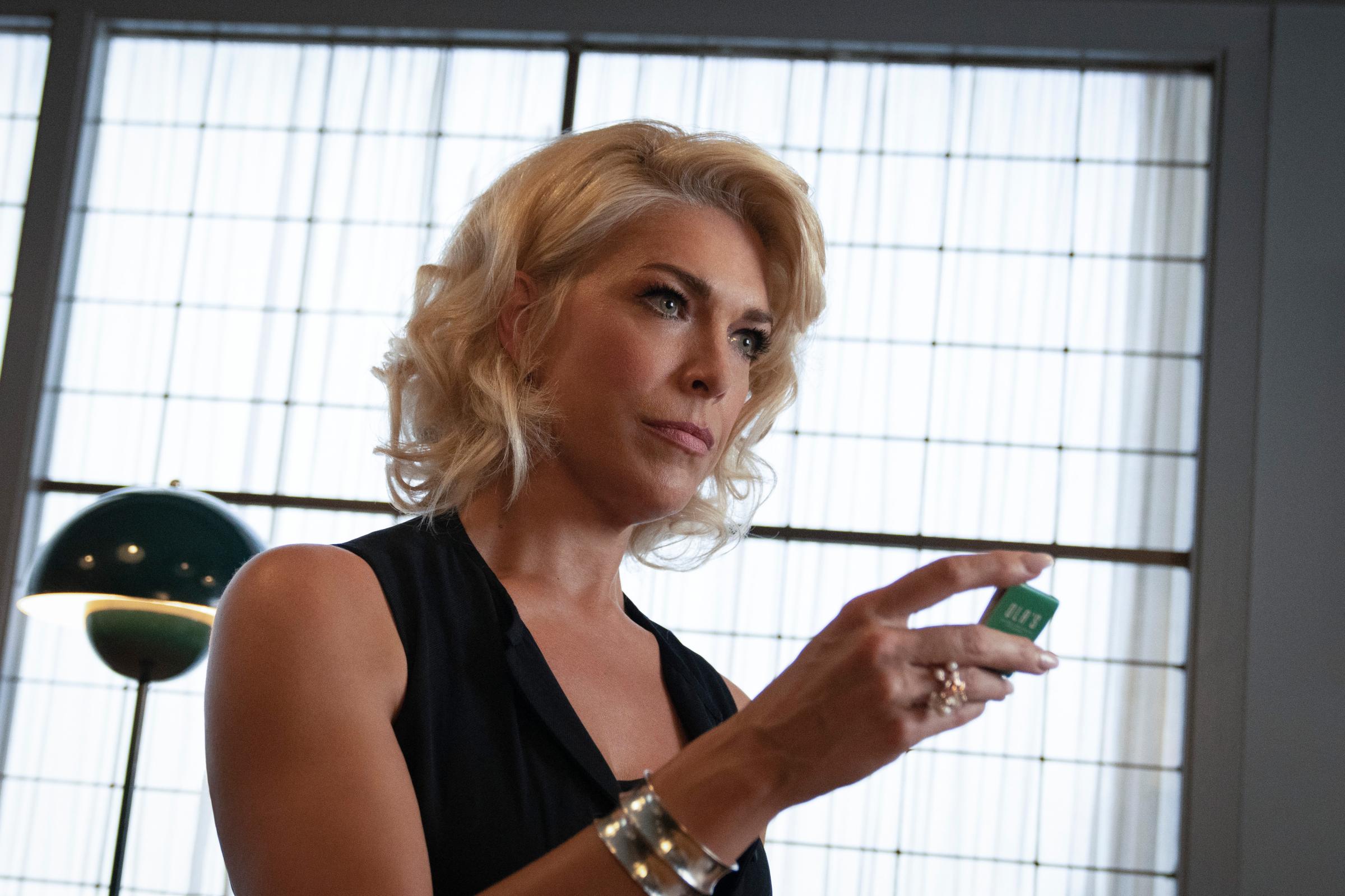
ED: My least favorite plot this season was Rebecca’s obsession with becoming a mother after a psychic suggested it could be in her future. I hoped that the series would end in her finding fulfillment in her job or deciding to become a mother on her own rather than throwing a random new character who happens to have an adorable daughter at her. The show tries to have its cake and eat it too by declaring her the mommy of the football club and inventing a family to stumble into her path. I just wish it weren’t so cliche.
Read more: Ted Lasso and TV’s Strange Quest to Build the Perfect Man
JB: Prepare yourself: I am about to say something nice about Ted Lasso. This season’s Amsterdam episode was one of the few I actually enjoyed, and that was in large part because of Rebecca’s semi-anonymous one-night stand with the Dutchman. It made sense, and was genuinely gratifying, at that point in her character development, to see her meet a man who could respect and appreciate her. The absent daughter worried me, though, because it all but guaranteed these characters would reunite in a subsequent episode and become a readymade family for Rebecca, thus proving the prophecy from earlier in the season correct.
For me, that was too much. Especially combined with her inevitable decision not to sell the team, it felt like a cosmic reward for time served in the Ted Lasso Self-Improvement Camp rather than a legitimate resolution to Rebecca’s story. And frankly, I think the reliance on love and football reveals how little we ever really knew about her. I often felt that, when it came to female characters, the show’s writers were always just kind of guessing what they might want or think or feel, instead of grounding any of their stories in real human experience.
How angry are we about the bizarre end to Keeley, Roy, and Jamie’s love triangle?
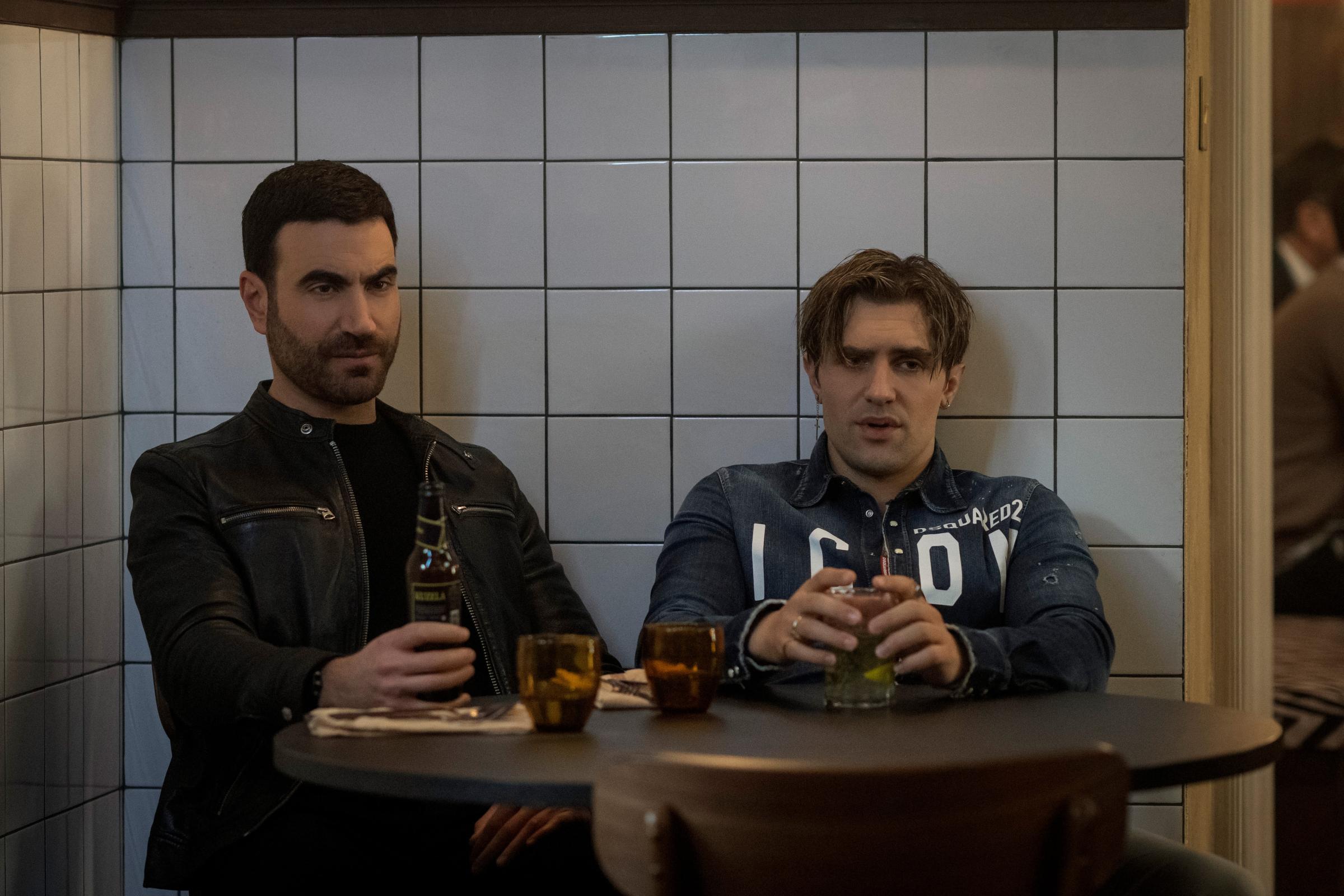
JB: I can’t pretend I had a ton invested in these relationships, but I did find it really bizarre that Roy and Jamie would come to blows over Keeley (offscreen, no less!) after all the time the show has put into bringing the two men together this season. One of the episode’s big themes—and probably the main theme of the show—is that no one is perfect and we can only ever try to become better versions of ourselves. But to regress so far that you’re kicking the ass of someone who’s become your closest confidant? I didn’t buy it.
ED: I, by contrast, was deeply invested in Roy and Keeley. I thought the evolution of Keeley from serial WAG to a woman who finds her own path worked well in tandem with Roy’s journey to learn to express his feelings in more than grunts. They had great chemistry, especially when they were playing surrogate parents to Roy’s niece Phoebe. I was frustrated when the show broke them up for no apparent reason (they’re both too busy, I guess?).
I agree, Judy, that for all the emotional progress Roy and Jamie have made over the seasons, it was bizarre to watch them revert to two dumb-dumbs pressuring Keeley to choose between them. Their characters weren’t even this regressive at the beginning of the series. That love triangle deserved a better ending.
Did Ted Lasso finally manage to make Nate’s character arc make sense?
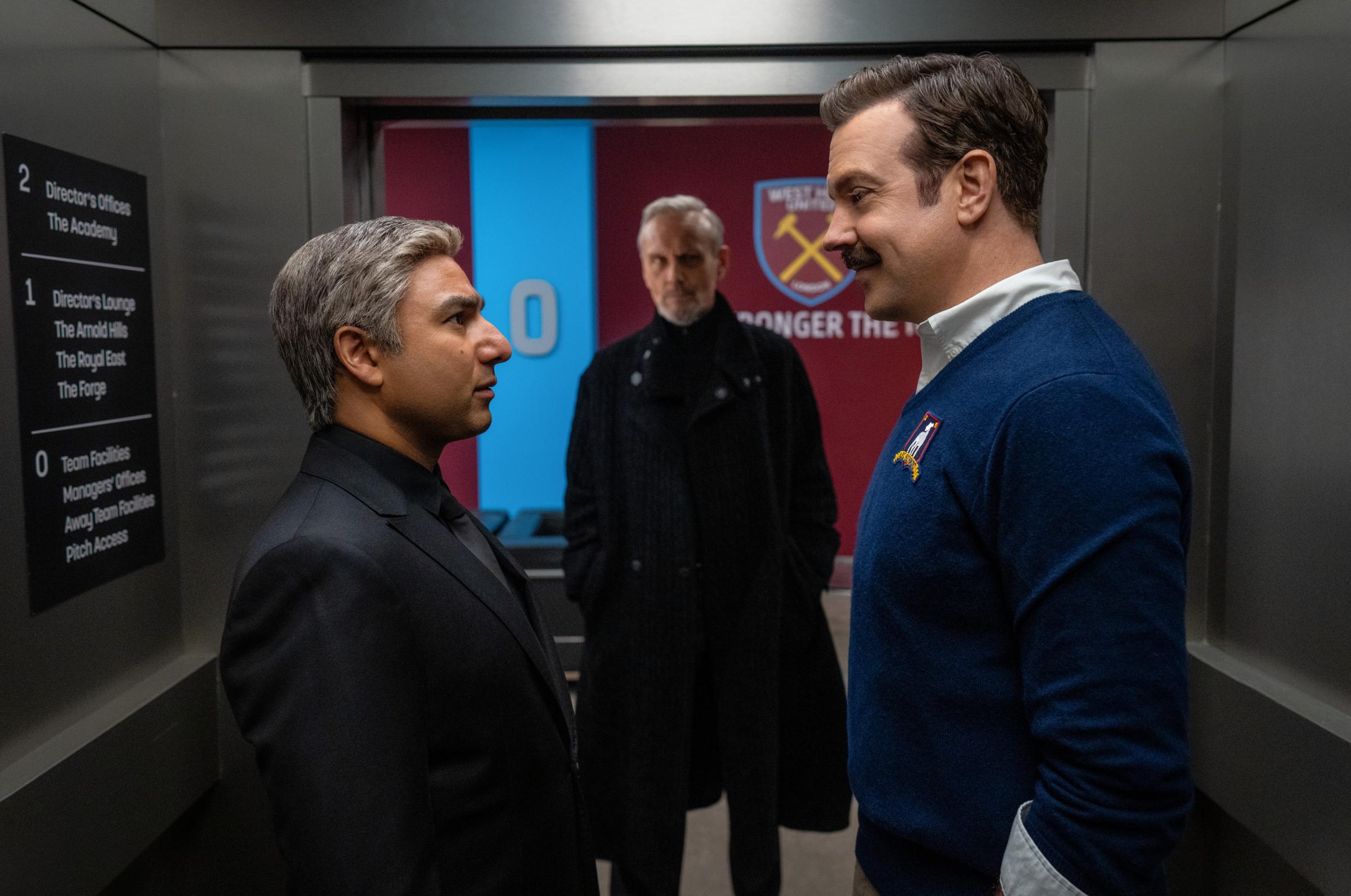
ED: Absolutely not. Nate’s bizarre turn from bashful kit man to tyrannical coach was the worst part of Season 2. I never bought it. His reversion back to nice guy seemed to arrive this season with his ability to finally snag a girlfriend. Can we please dispense with the notion that toxic men just need a nice woman to teach them to get in touch with their emotions and become good guys? It all feels so INCEL-y.
JB: Agreed! And to this day, all we really know about Jade is that she’s a hostess at the Greek restaurant and she loves Nate. At least give her a real personality. I don’t think Nate’s heel turn ever made sense—why did he suddenly hate Ted so much?—but even if it had, and even if I believed that one bad night would sour him on obvious supervillain Rupert, I still don’t get why he would so quickly transform back into the sweet person he was in Season 1. People just don’t work that way! Which is something I find myself thinking at least once in every episode of this show.
Read more: The 36 Most Anticipated TV Shows of Summer 2023
In general, are there characters whose trajectories worked really well for us? Or characters whose story lines left us especially unsatisfied?
JB: I was surprised by how much I was enjoying Roy and Jamie together. They fulfilled real emotional needs for one another: Roy had to learn how to become a real coach, which means motivating people rather than just growling at them or flipping them off. But Jamie especially was hurting for a supportive mentor to take the place of his horrible father, and the visit to his mom’s house really fleshed out his whole history. Anyway, then the show had to go and ruin this one convincing relationship in its very last episode. How incredibly frustrating.
Meanwhile, aside from Nate, there were a lot of characters who just did not work for me from beginning to end. I found it egregious that Colin really only existed to be gay and worried about coming out. There were also too many characters introduced this season who just never got developed at all: Jade, Keeley’s girlfriend/benefactor Jack, Keeley’s old friend/new employee Shandy. I don’t think it’s a coincidence that all of these people are women! For all that it preached enlightened manhood, Ted Lasso really did not treat women like full people.
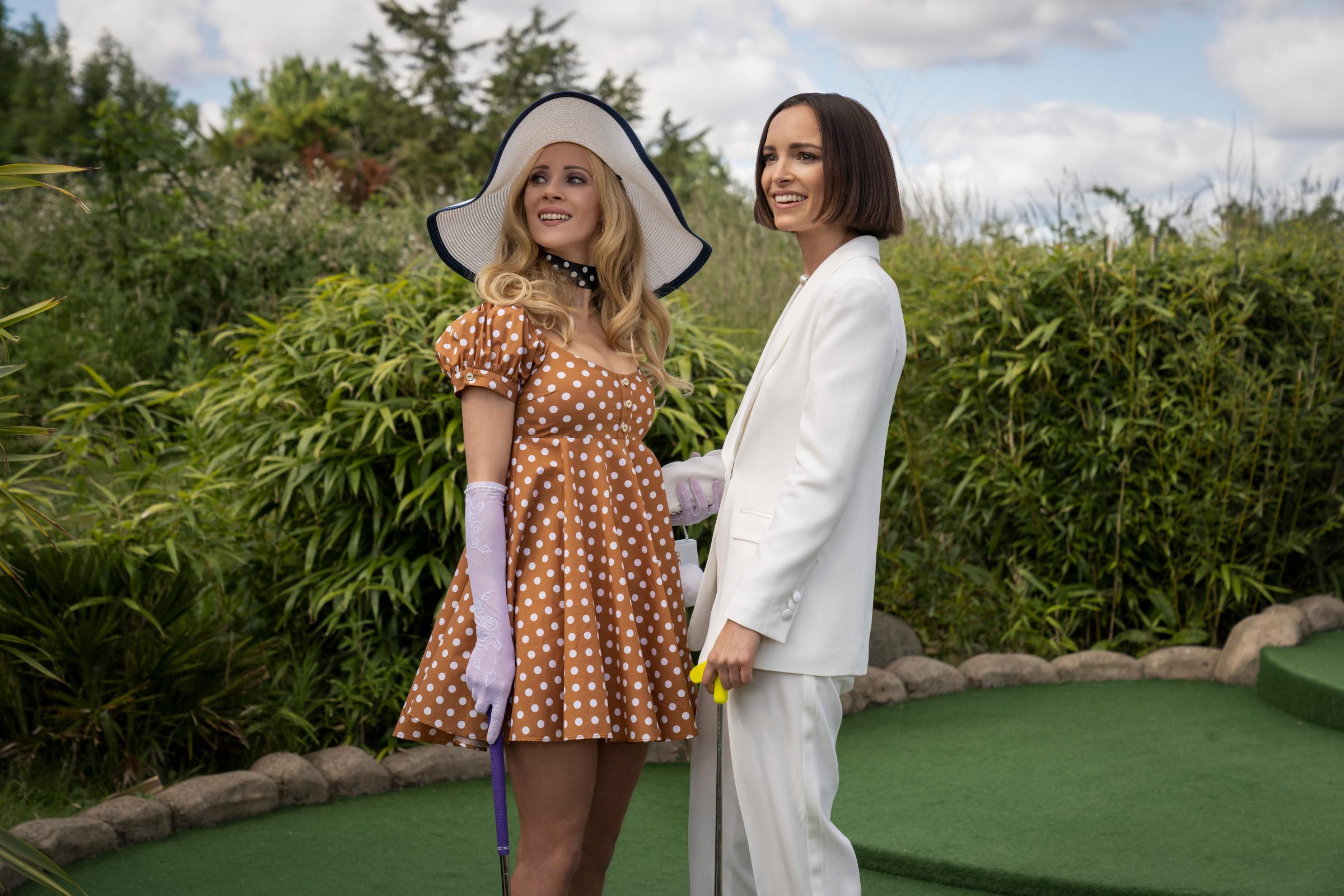
My other complaint is about Beard in general—I get that he’s supposed to be a wildcard, but does that really justify three seasons of utter randomness followed by that late-breaking reveal about his time in prison?—and Beard and Jane in particular. She was presented as this awful, manipulative person in the beginning, and then we just didn’t see enough of the relationship’s progression to understand why she became the love of Beard’s life. When he faked a ruptured appendix to get off the plane and stay in London and marry her, that all felt totally unearned.
ED: This show had too many characters by the end, and I lost the thread on a lot of them. I did like Sam’s maturation over the seasons, learning to use his platform to protest for political causes he believed in and stand-up to billionaire bullies. But his arc was often undercut by longing glances shared with Rebecca. I never loved that boss-employee romance.
In fact, the show was often derailed by plots designed purely to please fans shipping various combinations of characters. The opening scene of the finale, which briefly implies Ted and Rebecca slept together, served no purpose except to tease the people who have been desperate for Rebecca to hop into bed with another one of her employees. This never made sense for a variety of reasons, including the fact that Ted slept with Sassy, and he was inevitably headed back to Kansas. But I hope you Tedbecca shippers are (somewhat) satisfied.
What was the point of Ted Lasso, if any?
ED: I loved the first season of Ted Lasso and will die on the football pitch defending that famous darts scene. But the third season of the show felt like it was spinning its wheels. We got strange diversions into characters that went absolutely nowhere—Zava’s brief stint with the team; Keeley’s affair with her love-bombing boss Jack; the messy Shandy popping up and disappearing with no real impact on the plot.
Still, the last few episodes showed flashes of what made Ted Lasso great to begin with: Nate finally has a heart-to-heart with his stern father; Jamie decides to forgive his cruel dad after a chat with Ted; Rebecca reaches a detente with her mother over questions of her future; and Ted confronts his own mom about how her eternal optimism may have caused some damage. From the moment we learned in that darts scene that Ted’s father died by suicide, it became clear that a running theme of this show would be how children cope with the legacies of their parents. Would Nate do despicable things to try to earn his father’s approval? Would Jamie inflict the pain he felt at the hands of his dad on his fellow teammates? Would Rebecca become as dependent on a fickle man as her mother did? Would Ted abandon his child as he felt abandoned?
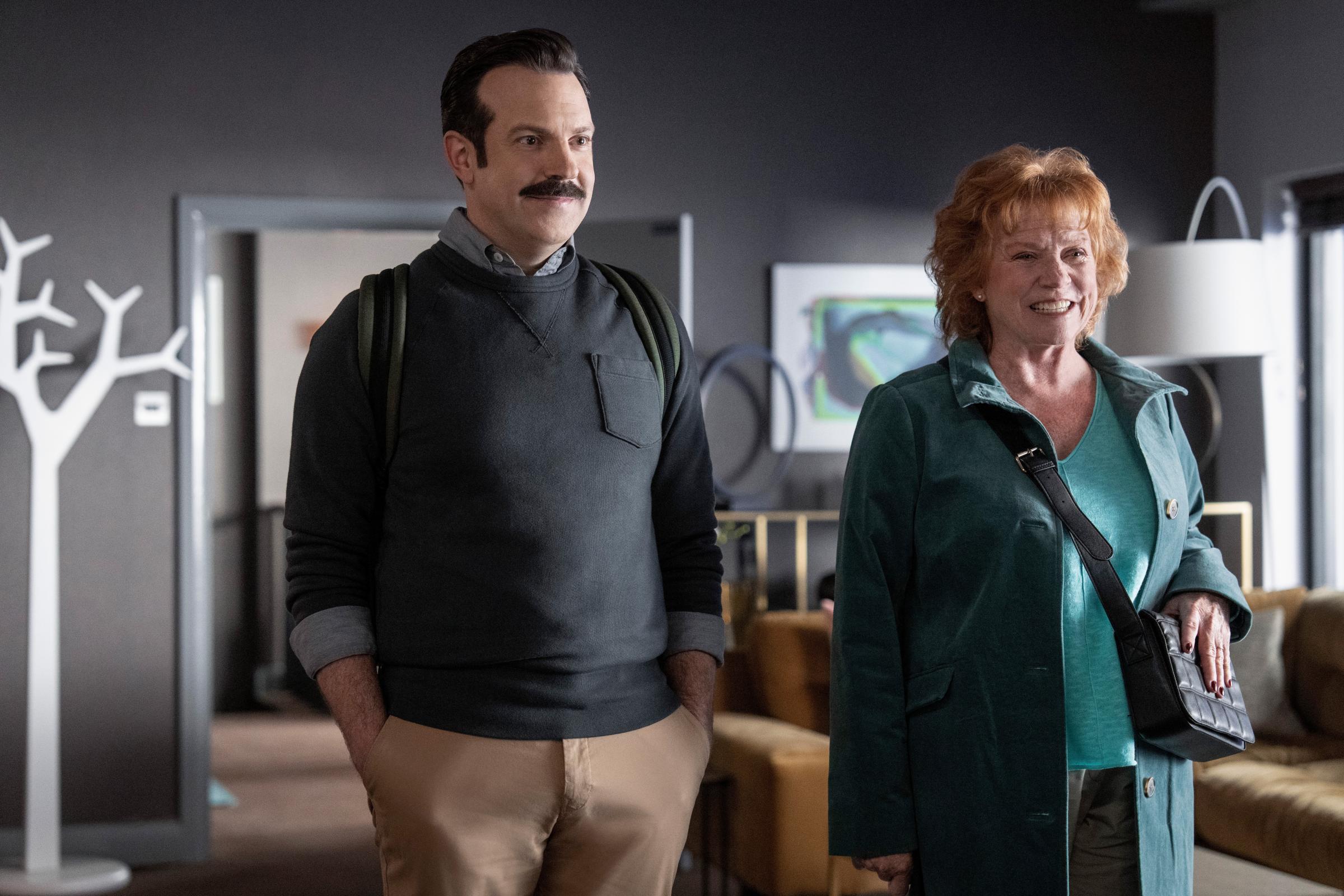
Unlike Succession, the other parent-obsessed show that just wrapped its final season, Ted Lasso insists in its ending that the poison doesn’t always drip through. We can make different choices than our parents, usually with the help of therapy and open communication.
Look, men—especially men in sports—have a really hard time with that kind of vulnerability. In real life, “locker room talk” refers to something far different than the sorts of confessionals we see on Ted Lasso. The show set out to prove there is not one single type of acceptable masculinity. Many times, it succeeded, particularly when it came to the emotional development of Jamie and Roy. Think about their ego-driven clash at the charity auction in the first season and how they’ve managed to develop a fulfilling friendship by the end of the series. That growth has value.
JB: I agree that the show was about a group of men, all of whom have identities tied to the macho, homosocial world of professional sports, learning to be vulnerable. Some were angry, some were immature, some were jealous, everybody had issues with their parents. Theoretically, that’s a good thing for a world where men’s inability to work through and communicate about their emotions can lead to everything from their own personal unhappiness to unspeakable violence. Ted Lasso would’ve made a great self-help book.
But to me, a show that pushes one simple message so relentlessly is propaganda, not entertainment. And I say this as someone who does not actually disagree with the message in question. The characters become role models, which means they never surprise you. The ones who don’t—like Rufus, whose ultimate #MeToo-ing was about as pat a conclusion as possible—are just cartoon villains. For much of the last two seasons, Nate and Ted were essentially positioned as Goofus and Gallant. Goofus says mean things about Gallant at a press conference. Gallant laughs them off in a charmingly self-deprecating manner. Etc. It’s didactic. Which is fine for actual children’s programming, but to an adult audience, it’s condescending.
It also limits the longevity of the story. Which is why I think Ted Lasso spent so long—and frustrated so many of its actual fans—casting about for new characters and ideas this season. The most salient theme to emerge was the one about parents, but again the show picked one moral and hammered it to death over the course of 12 episodes so bloated, they sometimes exceeded an hour. I groaned when Mae started reciting Philip Larkin’s poem-turned-cliche “This Be the Verse” in one episode, because the whole “They f-ck you up, your mum and dad” point had already been so belabored. I mean, did we have to watch every single character (or at least every single character whose Season 3 story line wasn’t fully pointless, like Keeley) learn not to repeat their parents’ mistakes?
ED: Just wanted to note that that Larkin poem also popped up in the first season of Succession (uttered by the family therapist on Connor’s ranch). Also it took me until today to realize that Rebecca’s mom is played by the same wonderful actor, Harriet Walter, who plays Kendall, Roman, and Shiv’s mother on Succession. She got to tell two sets of uber-rich kids to sell their companies this week. What a life!
JB: I actually had not realized that, about Harriet Walter, and the knowledge has enriched my life more than three full seasons of Ted Lasso. Anyway, I’m not going to argue that the Larkin quote was a high point for Succession, but I also don’t think it was presented with the same reverence with which this show framed Mae’s speech. Ted Lasso and Succession exist at opposite ends of the earnestness spectrum, which gives the latter a lot of cover for its occasional hacky moments.
Do we think there will be a Ted Lasso spinoff series?
JB: Unfortunately, I think the finale introduced a possibility in the form of Keeley’s “AFC Richmond Women’s Team” binder. It would be the easiest thing in the world to rebuild the show with Rebecca and Keeley as the new Ted and Beard, with a dozen young women on hand to learn life lessons from these best friends who have been through so much. But to the extent that Ted Lasso worked—and in case there was still any doubt, I don’t think it did—it was because there is a real sense that men, both on screen and off, needed its sort of remedial lessons in how to be human. Women aren’t perfect, obviously, but their problems would be very different. I can imagine a show about female players learning to be more assertive, to own their victories, to stand up for themselves in relationships. And it just sounds like lessons in girlbossery. Spare me!
ED: Heck, I think they hinted Ted Lasso might get rebranded and continue without its titular character. This entire season felt like a slow fade for Ted. He remained uncharacteristically silent in certain scenes in the finale episode, allowing the other characters to take center stage, for better or worse. Ted’s last note to Trent, “I’d change the title. It’s not about me. It never was,” certainly suggests that this entire cast may try to persevere without Jason Sudeikis under a new name. Roy Kent: A Ted Lasso Story?
More Must-Reads From TIME
- The 100 Most Influential People of 2024
- Coco Gauff Is Playing for Herself Now
- Scenes From Pro-Palestinian Encampments Across U.S. Universities
- 6 Compliments That Land Every Time
- If You're Dating Right Now , You're Brave: Column
- The AI That Could Heal a Divided Internet
- Fallout Is a Brilliant Model for the Future of Video Game Adaptations
- Want Weekly Recs on What to Watch, Read, and More? Sign Up for Worth Your Time
Write to Eliana Dockterman at eliana.dockterman@time.com